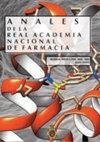液相色谱中的可持续替代品。药物分析中的应用
Q Pharmacology, Toxicology and Pharmaceutics
Anales De La Real Academia Nacional De Farmacia
Pub Date : 2022-12-31
DOI:10.53519/analesranf.2022.88.05.12
引用次数: 0
摘要
发展可持续和对环境友好的分析方法,除其他目标外,包括减少试剂和溶剂的消耗,以及减少产生的废物或在循环过程中重新使用这些废物。如果有一种分析技术在制药工业实验室和控制实验室中使用得更广泛,那就是液相色谱法。在这项工作中,简要回顾了应遵循的策略,以实现可持续的分离方法,而不放弃灵敏度,选择性,效率,精密度和准确性的特点,伴随着一个坚实的和既定的技术,如高效液相色谱。此外,使用具有表面多孔二氧化硅颗粒的固定相,“核-壳”型,由于其尺寸和孔隙特性,可以节省50%的废物产生体积。此外,使用离子液体修饰的流动相可以减少分析时间,以实现环保色谱。在药物分析的背景下讨论这些替代方法。关键词:流动相添加剂;离子液体;表面多孔的二氧化硅颗粒;抗癌药物本文章由计算机程序翻译,如有差异,请以英文原文为准。
Sustainable alternatives in liquid chromatography. Applications in drug analysis
The development of sustainable and environmentally friendly analytical methodologies involves, among other objectives, the reduced consumption of reagents and solvents, as well as the reduction of the waste generated or the reuse of the same in a circular process. If there is one analytical technique that is more widely used in both pharmaceutical industry laboratories and control laboratories, it is liquid chromatography. In this work, a brief review is made about the strategies to be followed to achieve sustainable separation methodologies without renouncing the characteristics of sensitivity, selectivity, efficiency, precision and accuracy that accompany a solid and established technique such as HPLC. In addition, the use of stationary phases with superficially porous silica particles, “core-shell” type, which, due to their size and porosity characteristics, can lead to a saving of 50% in the volume of waste generated. Furthermore, the use of modified mobile phases with ionic liquids allows the reduction of analysis times with the aim of achieving an environmentally friendly chromatography. These alternatives are discussed in the context of drug analysis.
Keywords: mobile phase additives; ionic liquids; superficially porous silica particles; anti-cancer drugs
求助全文
通过发布文献求助,成功后即可免费获取论文全文。
去求助
来源期刊

Anales De La Real Academia Nacional De Farmacia
Pharmacology-
CiteScore
0.13
自引率
0.00%
发文量
7
期刊介绍:
The Anales de la Real Academia Nacional de Farmacia� embraces all aspects of pharmaceutical sciences and is a quarterly journal that publishes basic and applied research on pharmaceutical sciences and related areas. It is a medium for reporting selected original and significant contributions to new pharmaceutical knowledge.
 求助内容:
求助内容: 应助结果提醒方式:
应助结果提醒方式:


